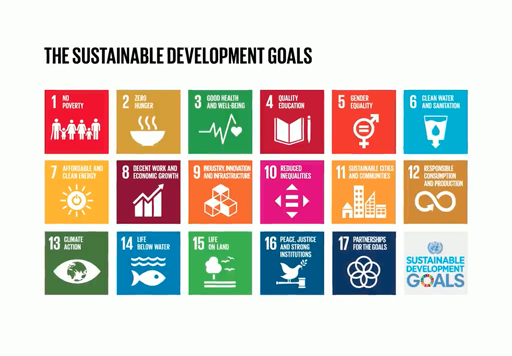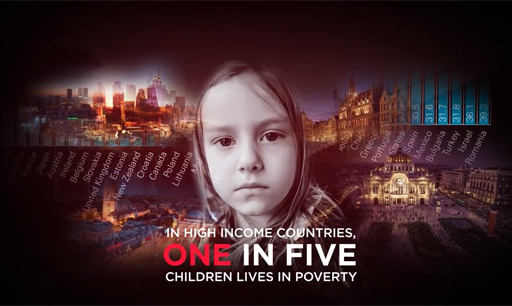1.1 The United Nations Sustainable Development Goals
An important place to begin this discussion is to remind yourself of the SDGs (Sustainable Development Goals).
Activity 1 Thinking about sustainable goals
Watch these two videos introducing them and then have a go at answering the questions below.
Please note that the first video has no audio.


Transcript
SPEAKER: In high income countries, one in five children lives in poverty, one in three 15-year-olds does not meet minimum education standards in reading, science, and math, one in eight children faces food insecurity. The UN Sustainable Development Goals are a roadmap for improving the lives of children in rich and poor countries alike.
New research from UNICEF ranks countries on how well-prepared they are to meet their goals. Sustainable development means protecting the rights of all children, no matter where they live.
- What are the Sustainable Development Goals?
- Why do we need them?
- How are they relevant to early childhood education?
Comment
In 2015, the 193 member states of the United Nations agreed 17 Sustainable Development Goals in recognition of the need to work collectively on the social, economic and environmental challenges facing the world. These built on the previous Millennium Development Goals and each goal has a set of ambitious targets to be achieved by 2030.
The relevance of the SDGs to early childhood are two-fold. Firstly, there is growing awareness of the effects of ‘unsustainability’ on the lives of children from birth. It is therefore vital for the adults who care for them to be aware of the issues and the ways they can contribute to the realisation of relevant targets (such as quality education). Secondly, early childhood is a time when the foundations for later values, attitudes and behaviours are established. As Froebel (1887, p. 24) recognised: ‘often the whole life of man is not sufficient to efface what he has absorbed in childhood … for this reason the care of the infant is so important’.
